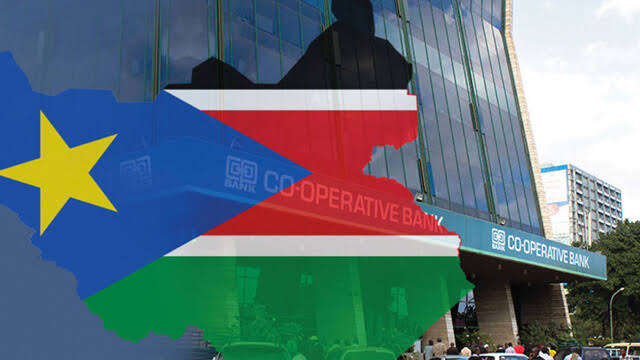The Co-operative Bank has injected Sh. 371 million into its South Sudan subsidiary. This has been announced through the bank’s 2021 annual report.
The report shows that the bank increased its capital in its South Sudan operations to Sh. 2.64 billion from Sh. 2.27 billion. “The Co-operative Bank of Kenya Limited injected additional capital of Sh. 372 million into Co-operative Bank of South Sudan in 2021,” the report said.
This comes barely a year after the bank extended its joint venture with the government of South Sudan by three years, renewing the parties’ co-ownership of the lender’s subsidiary headquartered in Juba.
The subsidiary is also known as the Co-operative Bank of South Sudan. It is a unique joint venture partnership with Government of South Sudan, in which Co-op Bank holds a 51 per cent stake and the Government of South Sudan a 49 per cent.
In addition, the Co-operative Bank has written off a cost incurred to implement a new software amounting to Sh. 671.56 million.
Bank of Tanzania visits Co-op Bank to learn how Direct Debit System works
The South Sudan subsidiary commenced operations in September 2013, and runs four branches. Over the past few years, the subsidiary has been in the loss making territory. This has largely been due to hyperinflation accounting due to currency devaluation of the South Sudanese pound.
The civil war in the country from 2013 to 2020, led to a massive write down of assets, loss of revenue and hyperinflation. This resulted in banks reporting losses due to reassessment of assets and liabilities.
Co-op Bank chief executive officer Dr. Gideon Muriuki has however expressed optimism that the market in South Sudan will stabilize.
“We believe that market will eventually stabilize,” said Dr. Muriuki. He explained that Co-op Bank had decided to venture into the South Sudan market in 2013 with the aim of bringing on board the South Sudan co-operative movement.
“The 49 percent shareholding held by the government of South Sudan was to be transferred to the co-operative societies in South Sudan but the peace process, the performance of that economy has taken time to stabilize and we have extended that period by another three or so years,” said Dr. Muriuki.









